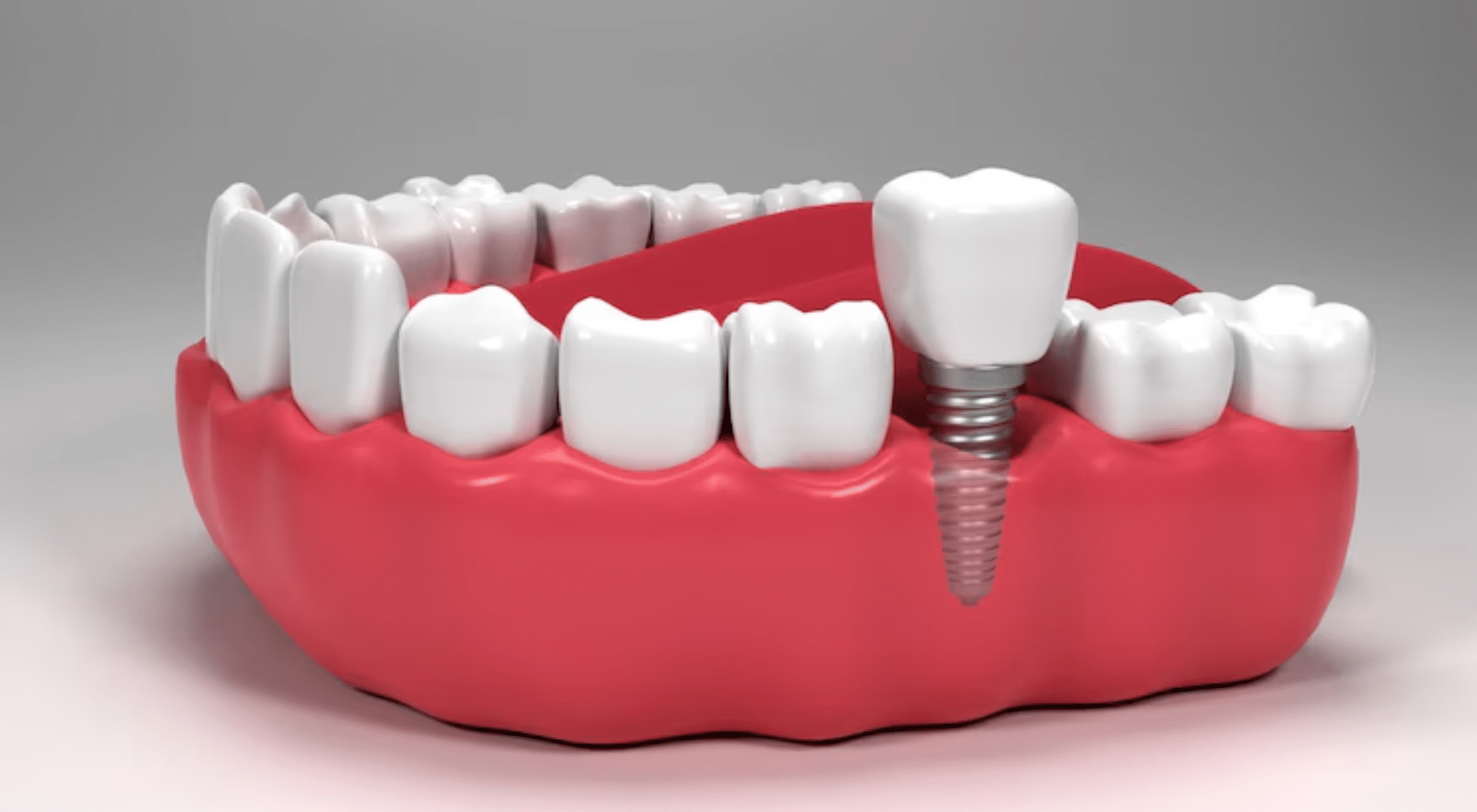
Implants of Steel: Rebuilding Smiles with Dental Precision
Welcome to the world of dental implants, the “implants of steel,” where smiles are rebuilt with unparalleled precision and lasting results. Dental implants have revolutionized the field of tooth replacement, offering a reliable and natural-looking solution for those with missing teeth. With their remarkable durability and functional capabilities, dental implants provide a solid foundation for artificial teeth, allowing individuals to regain the confidence to eat, speak, and smile without hesitation. Join us as we delve into the world of implants of steel, exploring the meticulous process, innovative techniques, and transformative impact of dental implants in rebuilding smiles and enhancing overall quality of life.
Dental Implants: Overview
Dental implants are advanced tooth replacement options that mimic the function and appearance of natural teeth. Made of biocompatible materials, such as titanium, dental implants are surgically placed into the jawbone to serve as artificial tooth roots. Over time, they fuse with the bone through a process called osseointegration, providing a stable and durable foundation for dental crowns, bridges, or dentures. Dental implants offer numerous benefits, including improved chewing and speaking abilities, enhanced aesthetics, and preserved facial structure. They are long-lasting solutions that can significantly enhance the quality of life for individuals with missing teeth, restoring their smiles and boosting self-confidence.
Who needs Dental Implants?
Dental implants are a suitable option for individuals who:
1. Have Missing Teeth: Dental implants are an ideal solution for those with one or more missing teeth, whether it’s due to tooth decay, gum disease, injury, or other dental conditions. Implants can replace individual missing teeth or support dental bridges or dentures for multiple missing teeth.
2. Desire a Permanent Solution: Unlike removable dentures or bridges, dental implants provide a permanent tooth replacement option. They are securely anchored in the jawbone, offering stability and durability that closely resembles natural teeth.
3. Seek Enhanced Functionality: Dental implants restore the ability to chew and speak naturally, allowing individuals to enjoy a wide range of foods and communicate without any concerns. With implants, there are no dietary restrictions or worries about dentures slipping or clicking.
4. Want Improved Aesthetics: Dental implants offer a natural and aesthetically pleasing appearance. The crowns or prosthetic teeth attached to the implants are customized to match the color, shape, and size of the surrounding teeth, ensuring a seamless and attractive smile.
It is important to consult with a dental professional to determine if dental implants are the right option for your specific dental condition and overall oral health. They can assess your needs, evaluate bone density, and discuss the best treatment plan for achieving a functional and beautiful smile.
Types Of Dental Implants
There are several types of dental implants available, including:
1. Endosteal Implants: Endosteal implants are the most common type of dental implants. They are placed directly into the jawbone during a surgical procedure. Once the surrounding tissues heal, a second surgery is performed to attach artificial teeth to the implants.
2. Subperiosteal Implants: Subperiosteal implants are an alternative to endosteal implants for individuals with insufficient jawbone height or density. These implants are placed on top of the jawbone, beneath the gum tissue. They consist of a metal framework that holds the artificial teeth securely in place.
3. All-on-4 Implants: All-on-4 implants are specifically designed for individuals who need to replace a full arch of missing teeth. With this technique, four strategically placed implants support a full dental bridge, providing stability and functionality. All-on-4 implants can often be completed in a shorter time frame compared to individual implants.
4. Mini Dental Implants: Mini dental implants are smaller in diameter compared to traditional implants. They are typically used for stabilizing dentures or replacing smaller teeth in areas where space is limited. Mini implants are less invasive and require less bone density, making them a suitable option for some patients.
The specific type of dental implant recommended for an individual depends on various factors, including the amount of available bone, the number of missing teeth, and the overall oral health of the patient. A consultation with a dental professional is necessary to determine the most suitable type of implant for each individual case.
Benefits Of Dental Implants
Dental implants offer several benefits as a tooth replacement option:
1. Improved Oral Function: Dental implants function like natural teeth, allowing for comfortable chewing, biting, and speaking. They provide stability and durability, enabling individuals to enjoy a wide range of foods without restriction.
2. Enhanced Aesthetics: Dental implants closely resemble natural teeth in both appearance and feel. They are custom-designed to match the color, shape, and size of surrounding teeth, resulting in a seamless and attractive smile.
3. Preservation of Jawbone Health: When a tooth is lost, the underlying jawbone can deteriorate over time. Dental implants stimulate the jawbone through osseointegration, helping to prevent bone loss and preserving the overall bone structure and facial contours.
4. Long-Term Durability: With proper care and maintenance, dental implants can last for many years, and in some cases, a lifetime. Unlike other tooth replacement options, such as dentures or bridges, implants are a permanent solution that eliminates the need for frequent replacements.
5. Improved Self-Confidence: Dental implants restore a person’s ability to speak, eat, and smile with confidence. They eliminate the self-consciousness associated with missing teeth, improving self-esteem and overall quality of life.
It’s important to note that the benefits of dental implants may vary depending on individual circumstances. Consulting with a dental professional can provide personalized information and help determine if dental implants are the right choice for restoring your smile.
FAQs
1. Are dental implants painful?
During the dental implant procedure, local anesthesia is administered to ensure a pain-free experience. Most patients report minimal discomfort and manageable soreness after the surgery. Any discomfort can typically be alleviated with over-the-counter pain relievers. Your dental professional will provide specific instructions for post-operative care and pain management.
2. How long does the dental implant process take?
The duration of the dental implant process can vary depending on individual factors, such as the number of implants needed, the condition of the jawbone, and the need for any additional procedures. On average, the process can take several months, including the healing period between implant placement and the final restoration attachment. Your dental professional will create a customized treatment plan and provide a timeline specific to your case.
3. Is everyone a candidate for dental implants?
Most individuals who are in good general health and have sufficient jawbone density are candidates for dental implants. However, certain factors, such as uncontrolled systemic diseases, smoking, or inadequate bone structure, may affect eligibility. A thorough evaluation by a dental professional will determine if dental implants are suitable for your specific situation.
4. How do I care for dental implants?
Caring for dental implants is similar to caring for natural teeth. Regular brushing, flossing, and routine dental check-ups are crucial to maintain oral hygiene and the longevity of the implants. Avoiding smoking and practicing good oral habits will contribute to the success and durability of dental implants.
5. Are dental implants noticeable or distinguishable from natural teeth?
Dental implants are designed to closely mimic the appearance and function of natural teeth. The artificial tooth or crown attached to the implant is customized to match the surrounding teeth, resulting in a seamless and natural-looking smile. Most people will not be able to distinguish dental implants from natural teeth.
It is essential to consult with a dental professional to address any specific concerns or questions you may have about dental implants. They can provide personalized information based on your individual dental condition and guide you through the implant process.
Source : Dr. Brett Langston
In conclusion, dental implants offer a transformative solution for individuals with missing teeth. With their ability to restore oral function, improve aesthetics, preserve jawbone health, and provide long-term durability, dental implants have revolutionized tooth replacement options, empowering individuals to regain their smiles and enjoy a confident, natural-looking appearance.




